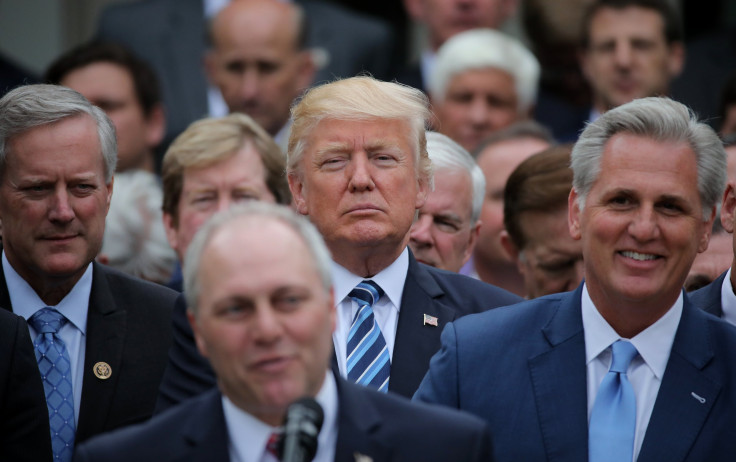Trump May Continue Iran Nuclear Deal, Bringing Relief To US Allies

According to a report from the Daily Beast, the chairman of the House Freedom Caucus and a close ally to President Donald Trump, Rep. Mark Meadows (R-N.C.), told the publication Thursday he expects the Trump administration will keep compliance with the landmark 2015 Iran nuclear deal, at least in the short run.
The deadline to certify Iran’s compliance to the deal the International Atomic Energy Agency calls “the world’s most robust verification regime,” and that was negotiated under the Obama administration comes next week on May 12.
Meadows’ comments come on the back of major concern across the pond last week, which saw both French President Emmanuel Macron and German Chancellor Angela Merkel visit stateside in order to persuade Trump not to back out of the deal between Iran and France, Britain, Germany, the United States, China and Russia and the rest of the EU.
Macron at the end of his three-day trip admitted he may not have succeeded in the effort.
“My view is... that he will get rid of this deal on his own, for domestic reasons," the French president said.
The Daily Beast reported that Meadows felt that the president’s present attention lie focused on his upcoming summit with North Korean leader Kim Jong Un and on trade policy with China, with the conservative congressman suggesting to the publication that the president may not want a withdrawal from the Iran nuclear deal to upset his administration’s ongoing discussions with the above-mentioned countries.
“I would not necessarily draw a foregone conclusion that we’re out this month,” Meadows told the publication. “To suggest that it’s a foregone conclusion that we’ll be out in weeks would be inaccurate based on my conversations with some of my colleagues on Capitol Hill, both Democrat and Republican.”
“If I had to handicap it, I would believe there’d be a short-term extension as we look to re-negotiate an agreement, even though the parties to those agreements have said re-negotiation is not on the table,” he said.
“Knowing that the deadlines on some of this correspond to key discussions on trade with China and denuclearization talks with North Korea, I can see a deferral more than an outright withdrawal being a tactic that is used right now,” Meadows added.
The U.K. Ambassador to the UN Karen Pierce speaking to CNN’s Christiane Amanpour said the deal is “centrally important for the non-proliferation regime, as a whole.”
"The Europeans do believe in the value of this deal," Pierce said. "The Americans see it very differently. I think the biggest difference, perhaps, is that we treat the nuclear agreement as a discrete entity. We agree with President Trump on Iran’s destabilizing behavior in the region and her use of ballistic missiles."
António Guterres, the UN secretary-general also urged the U.S. president not to end the deal and undo a big diplomatic victory without a better replacement, as it would lead to more instability in the Middle East.
“If one day there is a better agreement to replace it it’s fine, but we should not scrap it unless we have a good alternative,” Guterres told BBC Radio 4.
For Washington to re-impose sanctions on Tehran would mean the U.S. would be in violation of the Joint Comprehensive Plan of Action, or the JCPOA, as it is officially known. The deal, among other restrictions, was imposed on Iran to slash its stock of enriched uranium, number of centrifuges and machines that enrich uranium, and involved requiring them to allow long-term visas and satisfactory working allowances to 130-150 U.N. designated nuclear inspectors.
On Tuesday the U.K. secretary of state for foreign affairs, Boris Johnson, defended the bill saying: “The Iran nuclear deal is not based on trust about Iran's intentions; rather it is based on tough verification, including measures that allow inspectors from the International Atomic Energy Agency unprecedented access to Iran's nuclear program.”
“The fact that Iran conducted sensitive research in secret until 2003 shows why we need the intrusive inspections allowed by the Iran nuclear deal today,” he added.
The Daily Beast report, however, pointed that in the White House the mood differs sharply from Meadows’ speculations.
© Copyright IBTimes 2025. All rights reserved.






















